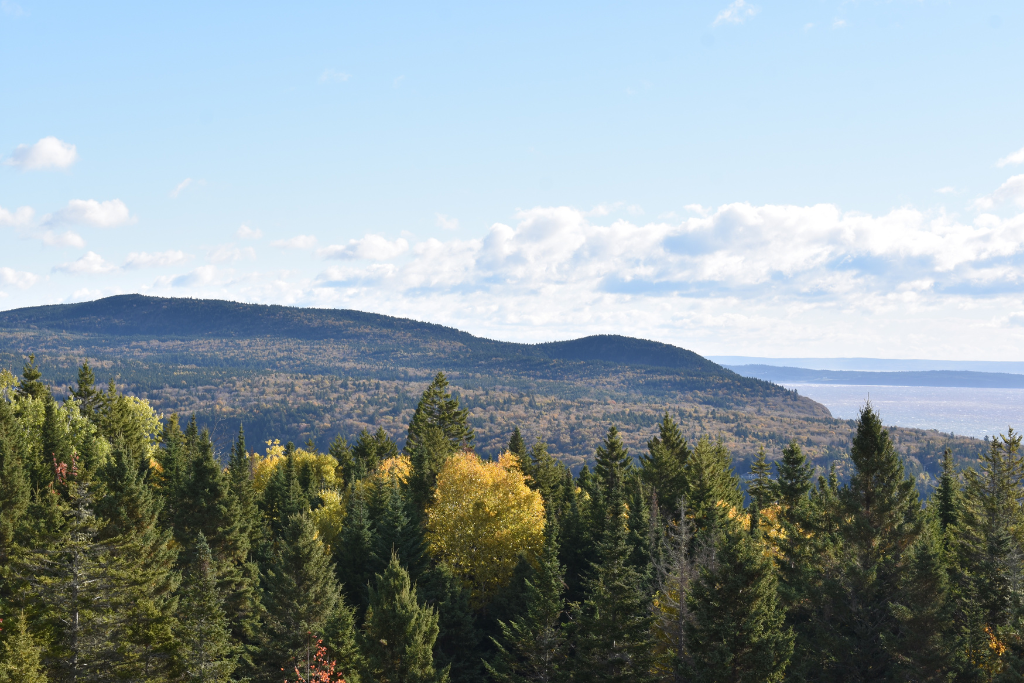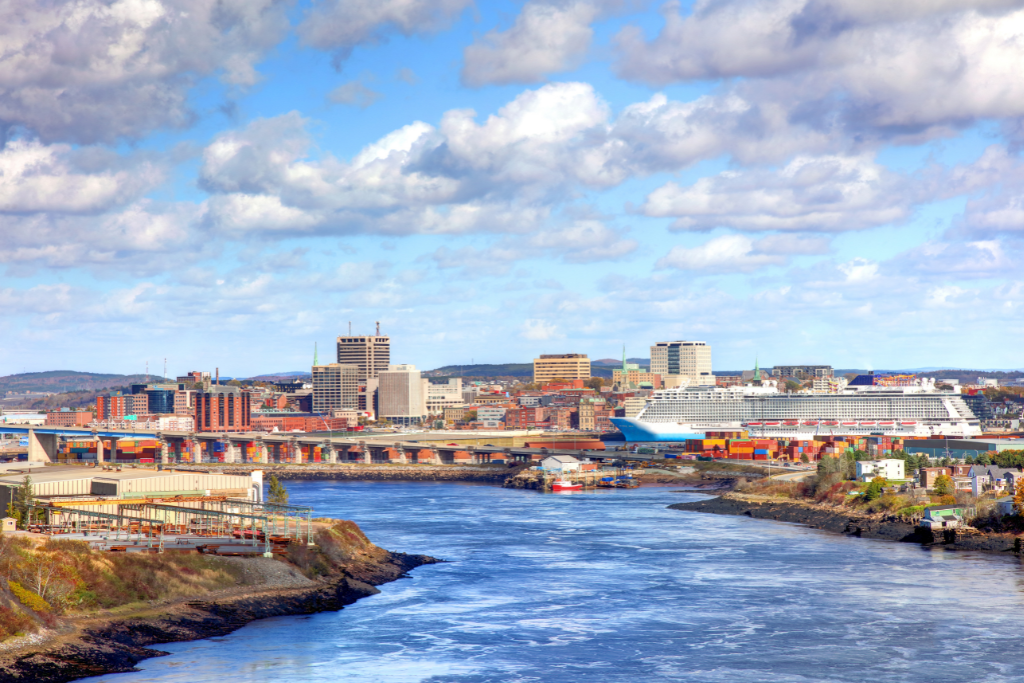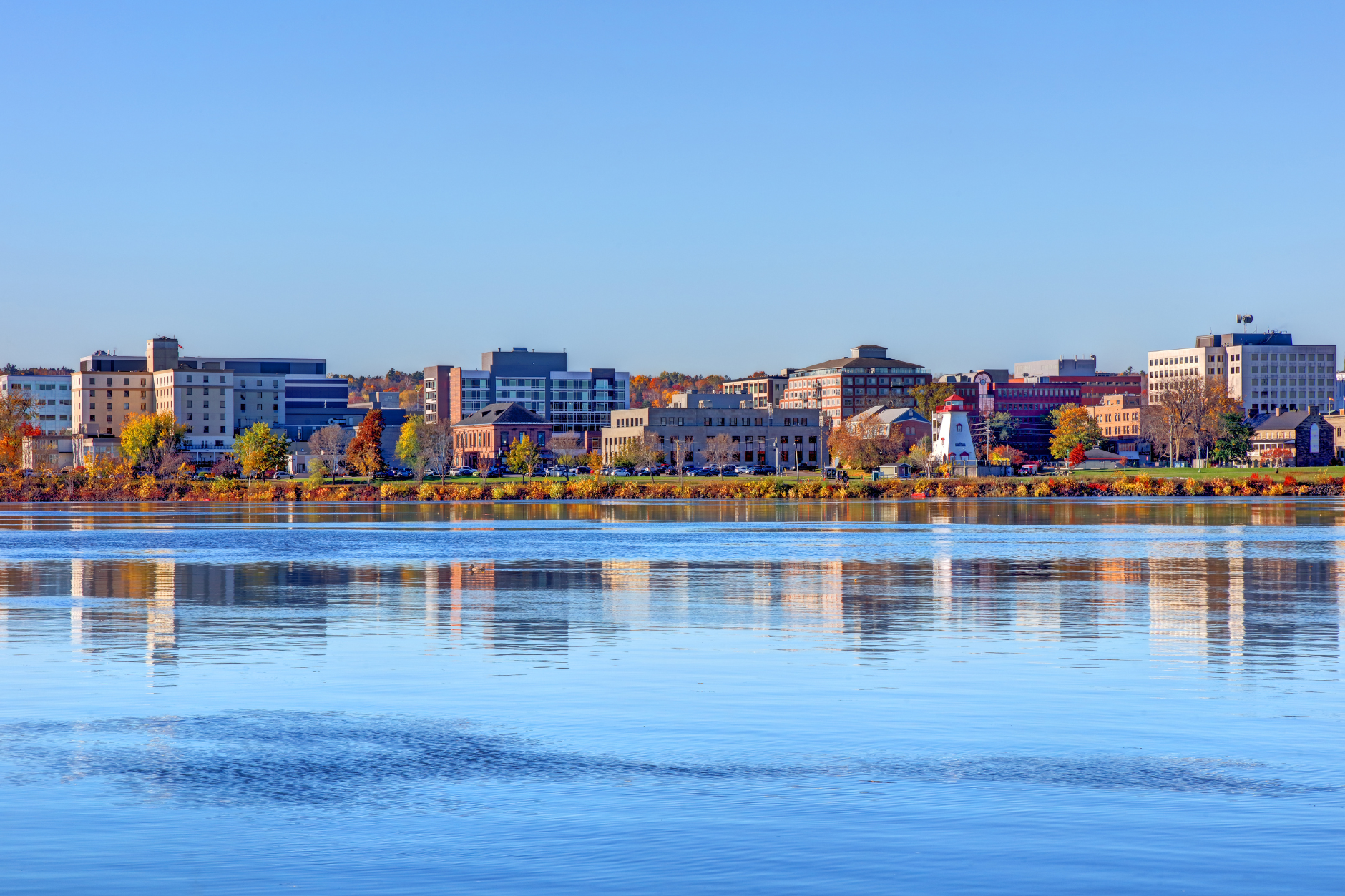1. First steps before moving to New Brunswick
Finding a job
In October 2024, New Brunswick’s unemployment rate was 6.8%. New Brunswick experienced a drop in unemployment when over 300 part-time positions were lost in the same month.
In fact, there were mainly declines in full-time employment within the sectors of agriculture.
The most in-demand jobs in New Brunswick as of November 2024 are:
Healthcare:
- Registered Nurses
- Licensed Practical Nurses
- Medical Doctors
- Dentists
- Physiotherapists
- Occupational Therapists
Education:
- Elementary School Teachers
- Secondary School Teachers
- Early Childhood Educators
Information Technology:
- Software Engineers
- Cybersecurity Specialists
- IT Support Specialists
- Web Developers
Skilled Trades:
- Carpenters
- Electricians
- Plumbers
- Welders
- Heavy Equipment Operators
Other In-Demand Jobs:
- Food Service Workers
- Retail Salespersons
- Truck Drivers
When finding a job in this city, it is important to look for employment vacancies and use internet job postings. Indeed and LinkedIn are examples of well-known sites.
Getting there
You may make an informed decision on how to move to New Brunswick by looking into these options for transportation.
Flying is the most convenient way to move to New Brunswick. You can book your flight to get there, for example through its major airport, Greater Moncton International Airport.
If you prefer an alternative mode of transportation, numerous cities in New Brunswick offer bus services by companies like Greyhound and regional bus operators too.
Traveling via train is a great option too, Via Rail Canada is the country’s main train service provider, or you can drive your car and plan your trip.
New Brunswick also has a ferry service operated by The Department of Transportation all year round to various ports in the province.
Must dos before your arrival
You may find it exciting and challenging to move to New Brunswick. You will be more prepared for your new life in the city if you are aware of these things beforehand.
- English and French are the predominant languages in New Brunswick. Learning basic French can help you have easy communication with the locals, especially if you are thinking of residing in French-speaking cities like Moncton or Edmundston.
- Begin packing your belongings and make moving arrangements, whether you plan to hire a moving company or transport your items yourself. Find out more here.
- If you are moving to New Brunswick from outside of Canada, ensure you have the necessary visa or residency status. This might include a work permit, study permit, or permanent residency application through Express Entry or the New Brunswick Provincial Nominee Program (NBPNP).
2. Upon your arrival in New Brunswick
Must dos right upon your arrival
- Get familiar with your neighborhood, and make sure to take note of the important emergency numbers.
- Locate the essential facilities like the nearest hospital, police station, and fire department for your safety and in case of emergency.
- Change all your officially listed addresses. In order to do this, start by downloading a New Brunswick address change checklist or accounts that need to be canceled.
- Once you have handled all your administrative tasks, you should also get yourself a local phone number if you come from outside of Canada. The most popular phone services in New Brunswick include Bell, Rogers and TELUS. Find out more information on how to change your address with your telecom provider.
Exchanging your driver’s licence
According to Service New Brunswick (SNB), if you have recently moved to New Brunswick, you must visit one of the SNB Service Centers so they may update your address. You can find the nearest SNB Services Centre near you here. It is important to bring all the necessary documents like your current passport and drivers licence.
At the SNB Service Center, it will also be required to change your address on your Medicare card, which will be completed within 5 business days. Find out more on how to change your address in New Brunswick.
Setting up a bank account
When moving to New Brunswick, it’s essential to establish a local presence by setting up a bank account. The main banks you can find in New Brunswick are Royal Bank of Canada (RBC), ScotiaBank, TD Canada Trust, BMO and CIBC which have multiple locations across the province.
Getting health insurance
Getting health insurance in New Brunswick can be obtained through the Government of New Brunswick or private health insurance.
To be eligible, you must be a Canadian citizen or a permanent resident of Canada. You can find out if you are eligible by contacting this email address at medicare.eligibility@gnb.ca. You typically become eligible on the first day of the third month after you establish residency in the province.
If eligible, you can apply for health insurance by clicking here.
3. Best places to live in New Brunswick

New Brunswick doesn’t have large metropolitan cities like Vancouver and Toronto. With 80% of its land covered in forests, it is mostly meant for people who prefer rural pastoral towns. The following are some of the best cities to live in New Brunswick.
| Neighborhood | Characteristics |
| Fredericton | Province’s capital city |
| Moncton | 30% of inhabitants French-speaking |
| Dieppe | European-styled architecture |
| Riverview | Quiet town surrounding hiking tailings |
| Saint John | Canada’s oldest incorporated city |
| Bathurst | Located near Youghall Beach |
Setting up home services
The most popular natural gas providers in New Brunswick are New Brunswick Energy and Utilities Board – Natural Gas Suppliers and Enbridge Gas New Brunswick.
The water and sewer services in New Brunswick are provided by the Province of New Brunswick. The application can be done via their website or get in touch with their customer service for assistance.
New Brunswick offers their residents affordable internet services through companies like Xplore, TELUS and Rogers. Learn more about the best internet providers in Moncton, NB.
Should you rent or buy?
As of October 2024, the average cost of buying a property in New Brunswick is $318,500; as of August 2024, the average rent for a 1-bedroom apartment in New Brunswick is $1,108.33.
The rental market in this province is equally competitive, too, because of high demand for rental apartments. Trusted websites such as Redfin, Apartments.com and Zumper are often used to find available apartment listings and property or engage with real estate agents for assistance.
CREA (Oct 2024) & Numbeo (Aug 2024)
4. Cost of living in New Brunswick
To show the cost of living in New Brunswick, we will be using Moncton as an example.
| Category | Saint John |
| 1 bed apt rent outside city center | $1,108.33 |
| Groceries
*The grocery list on Numbeo was summed (without beer and cigarettes) and then multiplied seven times to meet a 2000 calorie per day diet. |
$768.95 |
| Utilities
Electricity, heating, cooling, water, garbage |
$164.00 |
| Internet with 60 Mbps | $99.31 |
| Transit pass | $70.00 |
| Entertainment
Meal, taxi, movie |
$88.62 |
| Gym membership | $42.00 |
| Total | $1,773.44 |
5. The weather in New Brunswick
According to the Government of New Brunswick, the province has a variety of different climates, offering diverse weather conditions throughout the year.
January is typically the coldest month with an average minimum temperature of -13°C. Whereas, the warmest month in New Brunswick is in July with the average maximum temperature of 25°C. You can expect to see the most rain in December with an average rainfall of 105 mm.
6. What to do as a local in New Brunswick
The following are some of the major sights and attractions in New Brunswick.
- The most popular attraction in New Brunswick is the Fundy National Park in the Bay of Fundy. This location experiences some of the highest tides in the world measuring 19 meters.
- Embark upon a kayak tour of the Hopewell Rocks at high tide.
- Go to St. Andrews-by-the-Sea and embark upon a whale watching expedition at the Bay of Fundy.
- Visit Grand Manan Island by ferry from Blacks Harbour.
- Dig your toes into the sand and hit the beaches of Kouchibouguac National Park.
7. Fun facts about New Brunswick
- Grand Falls Gorge is the largest waterfall in the province, measuring 70 meters high and located in a 1.5 kilometers long gorge.
- The Hartland Covered Bridge in Hartland is the world’s longest covered bridge, measuring 390 meters.
- The Bay of Fundy is home to 12 different species of whales and a variety of sharks including threshers, makos, porbeagles, and the Great White Shark.
- The town of Shediac is home to the world’s biggest lobster (sculpture), measuring 10.5 meters in length, 4.5 meters in height, and weighing 90 tons. The town is fondly called “The Lobster Capital of The World.”
- New Brunswick is home to “Old Sow”, the second-largest whirlpool in the world. It’s located between Deer Island and Indian Island and can be viewed from Eastport, Maine.
Conclusion
Moving to New Brunswick is an exciting experience that promises a unique experience. It offers an appealing lifestyle, making it attractive to individuals, young professionals, and families alike. The province has several family-friendly neighborhoods to offer to its new residents.
In need of a trusted moving company to move you to Fredericton? Discover the 5 best movers in Fredericton.



